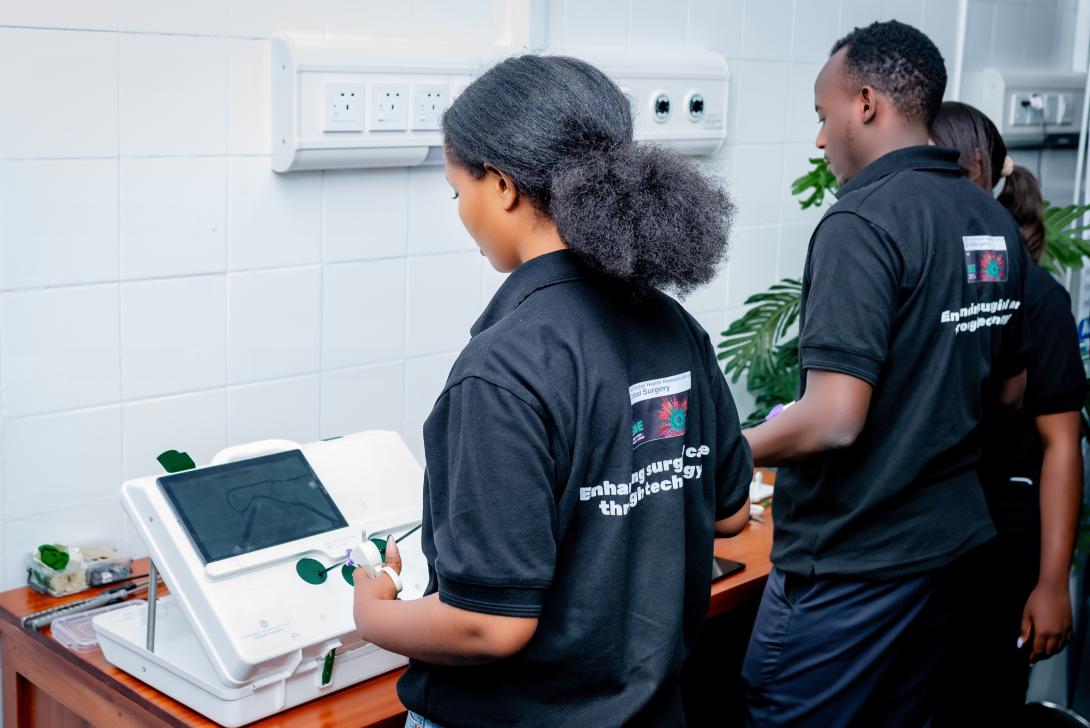Advancing Global Healthcare: Inauguration of the Kibagabaga Simulation Center
In a momentous step towards improving global surgical capabilities, the inauguration of the Kibagabaga Simulation Center stands as a landmark event under the Global Surgery Health Technology Evaluation and Validation Consortium Project. This initiative, led by the NIHR Global Health Research Unit on Global Surgery Rwanda, aims to revolutionize surgical training and proficiency assessment, particularly in laparoscopic techniques.
Addressing Critical Healthcare Gaps
Surgery remains a vital but inaccessible aspect of healthcare for millions worldwide due to shortages in trained personnel and resources. The Consortium Project identifies this disparity, highlighting a need for an estimated 143 million additional surgical procedures annually to meet basic healthcare requirements and prevent unnecessary fatalities. The adoption of laparoscopic methods, recognized for their ability to reduce pain, infection rates, and recovery times, offers a viable solution to scaling surgical interventions effectively.
The Role of Simulation Centers
Simulation centers like the newly inaugurated facility at Kibagabaga Level 2 Teaching Hospital play a pivotal role in bridging this gap. These centers provide a controlled environment where healthcare professionals can undergo extensive training in laparoscopic procedures using cutting-edge equipment. Through skill-based models and rigorous assessments, surgeons and non-MDs alike can acquire and demonstrate proficiency in minimally invasive surgery.
Inauguration Event Highlights
On June 17, 2024, stakeholders gathered at Kibagabaga to celebrate this significant milestone. The event was graced by esteemed guests including Prof. Abraham HA. Mitike, Principal of UR-CMHS, and Dr. Ernest Lt Col. Munyemana, Hospital Director. Prof. Mitike's presence underscored the academic and institutional commitment to advancing surgical education, while Dr. Munyemana's leadership highlighted the hospital's dedication to fostering innovation in healthcare delivery.
The inauguration commenced with an overview of the Consortium Project, outlining its objectives to elevate surgical training globally. Attendees participated in live demonstrations of laparoscopic trainer boxes and engaged in practical sessions designed to familiarize participants with the Camel Study—an innovative approach to laparoscopic skills acquisition and assessment.
Impact and Future Directions
The establishment of the Kibagabaga Simulation Center marks a significant stride towards enhancing surgical proficiency not only in Rwanda but potentially across the region. As a pivotal training hub, the center aims to empower healthcare professionals with advanced surgical skills, ultimately enhancing patient outcomes and reducing healthcare costs.
Conclusion
The inauguration of the Kibagabaga Simulation Center heralds a new era in global healthcare, where innovation meets necessity to address the challenges of surgical access and training. Through collaborative efforts and state-of-the-art technologies, initiatives like the Global Surgery Health Technology Evaluation and Validation Consortium Project demonstrate a steadfast commitment to transforming healthcare delivery worldwide.



